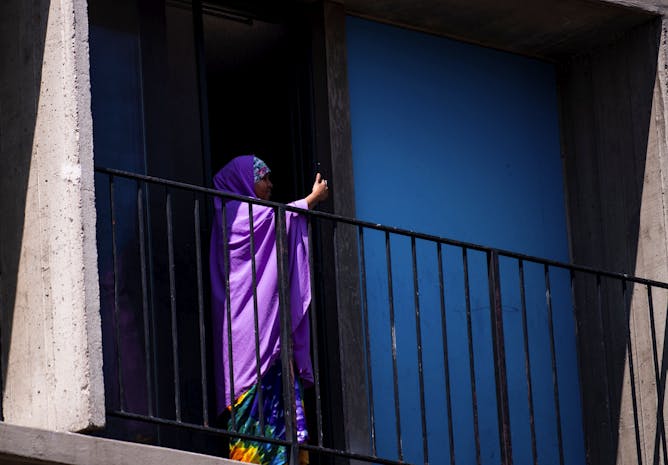|
The Islamic holy month of Ramadan ends this weekend for the world’s 1.8 billion Muslims. Normally, this period of prayer and fasting is followed by a convivial multi-day communal feast called Eid al-Fitr. This year, of course, Eid festivities must take place largely at home due to the coronavirus pandemic. Mosques are offering digital prayer sessions and other programming, but the shift from in-person to remote worship has been difficult for many Muslims.
For some Muslim women, however, the sudden proliferation of online religious services is a welcome change, writes gender and Islam scholar Anna Piela. Her survey of 38 Muslim women found that for those used to spending Ramadan at home, cooking and taking care of children, celebrating Eid under lockdown will be nothing out of the ordinary.
This week we also liked articles about why veterans are especially susceptible to COVID-19, the attribution of human characteristics to the coronavirus and an early source of Little Richard’s musical inspiration.
|

Dar Al-Hijrah Mosque in Minneapolis, Minnesota, before the midday prayer during Ramadan, the Muslim holy month that ends May 27, 2020, and is celebrated this year amid pandemic.
Stephen Maturen/AFP via Getty Images
Anna Piela, Northwestern University
A survey of Muslim women finds many are frustrated by having a Islamic holy month in quarantine. But others say a "remote Ramadan" is nothing new because child care duties often keep them home anyway.
|

U.S. war veterans’ graves at Fort Rosecrans National Cemetery, San Diego, California.
Getty/Sean M. Haffey
Jamie Rowen, University of Massachusetts Amherst
With the challenges posed by the coronavirus pandemic, veterans who were already lacking adequate benefits and resources are now in deeper trouble.
|

The coronavirus is really just an inanimate packet of genetic material.
Carol Yepes/Moment via Getty Images
Michaela Porubanova, Farmingdale State College; Stewart Guthrie, Fordham University
Thinking of SARS-CoV-2 as an invisible enemy with an evil personality and humanlike motivations is a natural offshoot of the way people evolved to anthropomorphize so as not to overlook threats.
|
|
|
-
Robert S Clagett, Colorado College
The COVID-19 pandemic has many students thinking about forgoing a year of college. A gap year specialist says many benefits flow from taking the academic break.
-
Ben Saunders, University of Oregon
Little Richard honed his craft as a teenage drag queen. In everything from his hairstyle to his lyrics, we see the influence of gay contemporaries like Esquerita and Billy Wright.
-
Marilyn Roberts, University of Washington
Research has yet to support the theory that cash can spread the coronavirus.
|
|